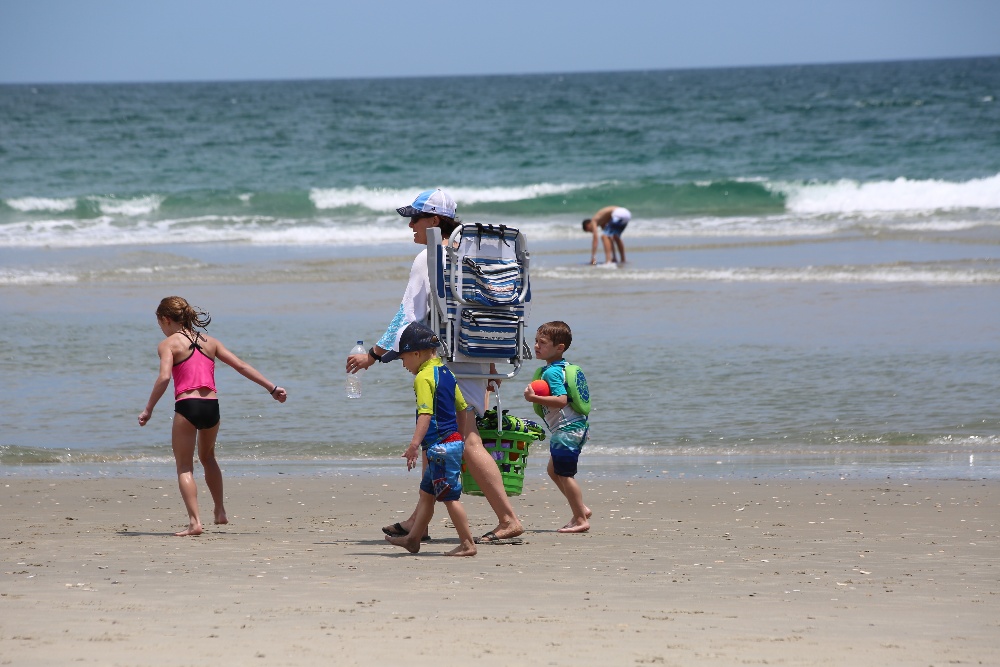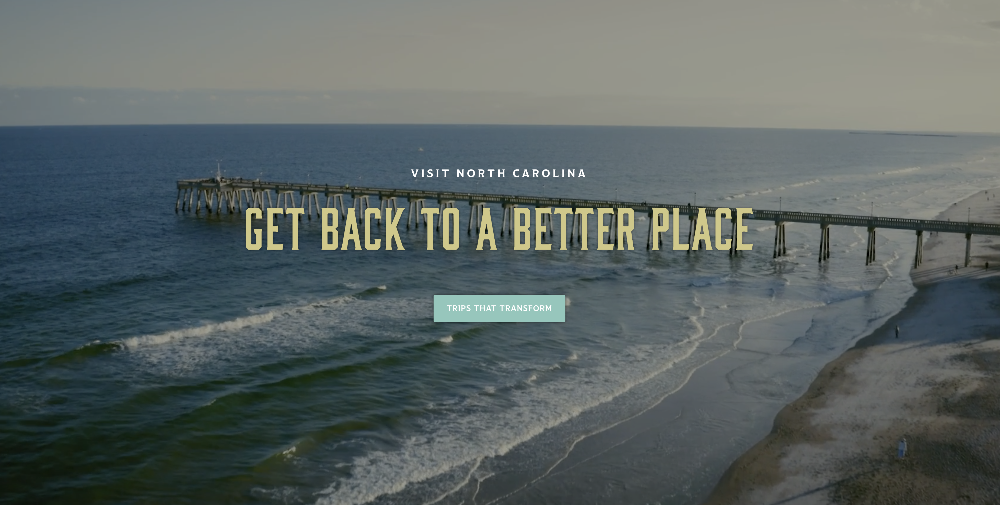NC Tourism report reveals economic impact of COVID
by Think Currituck, on 5/10/21 2:18 PM

Visit North Carolina's commissioned report about tourism during 2020 underscores how the COVID-19 pandemic affected this significant source of income for the state.
Tourists' spending declined 32 percent last year.
Up until then, the state had been enjoying a decade-long series of spending performances. Further, people visiting North Carolina in 2020 spent $19.96 billion. Of that amount, stateside travelers contributed $19.7 billion, a 29.5 percent decline from the nearly $28 billion spent in 2019; international visitors gave $268 million, which is down 79.4 percent from the year before.
As would be expected, the workforce dedicated to tourism also went down; it declined 26.4 percent to 178,700 positions.
The payroll was at $6.4 billion, which was nearly a 25 percent decrease from 2019, regarded as a record-breaking year. The state and local governing bodies experienced drops in tax revenues made through visitors, going from $2.4 billion in 2019 to $1.8 billion in 2020.
This accounting and other details, performed by the U.S. Travel Association and Tourism Economics, was released on May 5 by the state's Department of Commerce. Visit North Carolina is a facet of the Economic Development Partnership of North Carolina (EDPNC), which in turn is a contracted partner of Commerce.
NC Commerce Secretary Machelle Baker Sanders said in reaction to the report, “The recovery of our tourism industry is essential to the state’s economic well-being. More than 45,000 small businesses across North Carolina rely on what visitors spend, on everything from lodging and dining to transportation, recreation and retail. Jobs across all 100 counties need visitors to thrive.”
She added that because of tourism dollars to state and local tax revenue, such as hotels and food services, each North Carolinian resident experiences approximately $170 in savings annually.
EDPNC's CEO Christopher Chung stated, “For generations, North Carolina has banked on tourism’s contributions to the local and statewide economy and to the livelihoods of thousands of residents. We hope that with continued progress in the fight against COVID-19, we can work together to restore the vitality of an industry that benefits every corner of the state.”
There are encouraging reasons for optimism.
In late April, Gov. Roy Cooper announced an official relaxation of regulations concerning the wearing of masks and public socializing. This was based on North Carolinians following guidelines and getting vaccinated, both which have helped to improve COVID-19-related trends. Should progress be maintained or, better still, increased in those areas, the governor could further lift restrictions.

Visit NC has also felt confident enough to start in April its campaign, “Get Back to a Better Place,” which is intended to encourage residents and visitors to explore North Carolina.
In Currituck County's strategy and marketing plan for 2020-2021, the report noted that when the region felt comfortable enough in May 2020 to allow visitors, “... we saw unprecedented demand for vacation rental accommodations in Corolla. We are enjoying an occupancy rate that we have not seen for many years. No one predicted this, no one expected this, but we are all grateful for these intrepid vacationers. COVID-19 is still with us, so we are adjusting our marketing strategy and looking for new and unique marketing programs and tactics.”
Wit Tuttle, director of Visit NC, said, “With the vaccine rollout and improved metrics in the fight against COVID-19, we’re eager to jump-start the recovery of the North Carolina tourism industry. It might be a long road, but given our state’s resiliency and its vast appeal to travelers, we have confidence in a comeback that will bring us back to a better place.”


